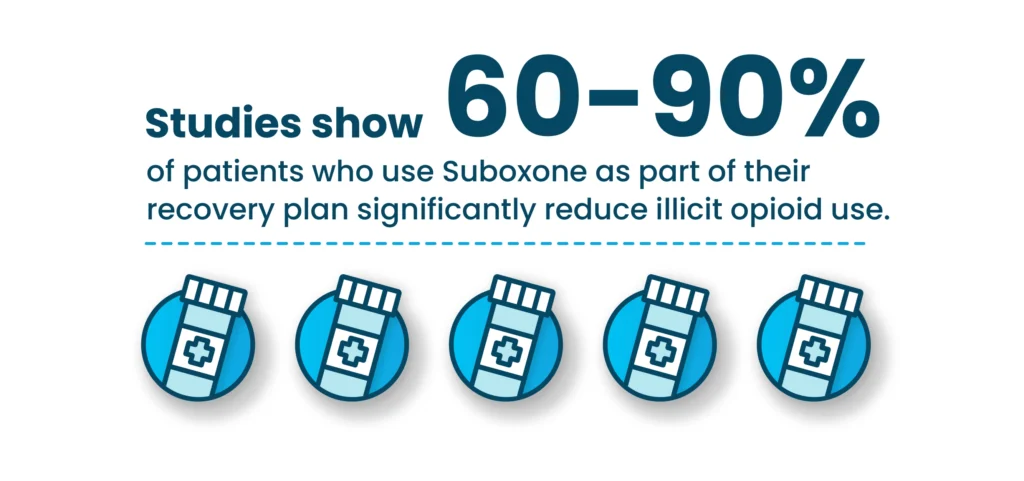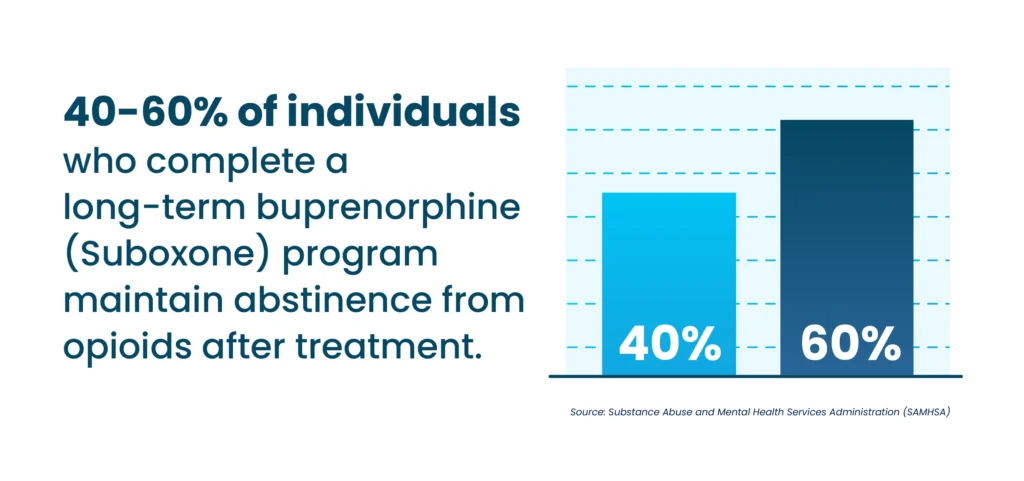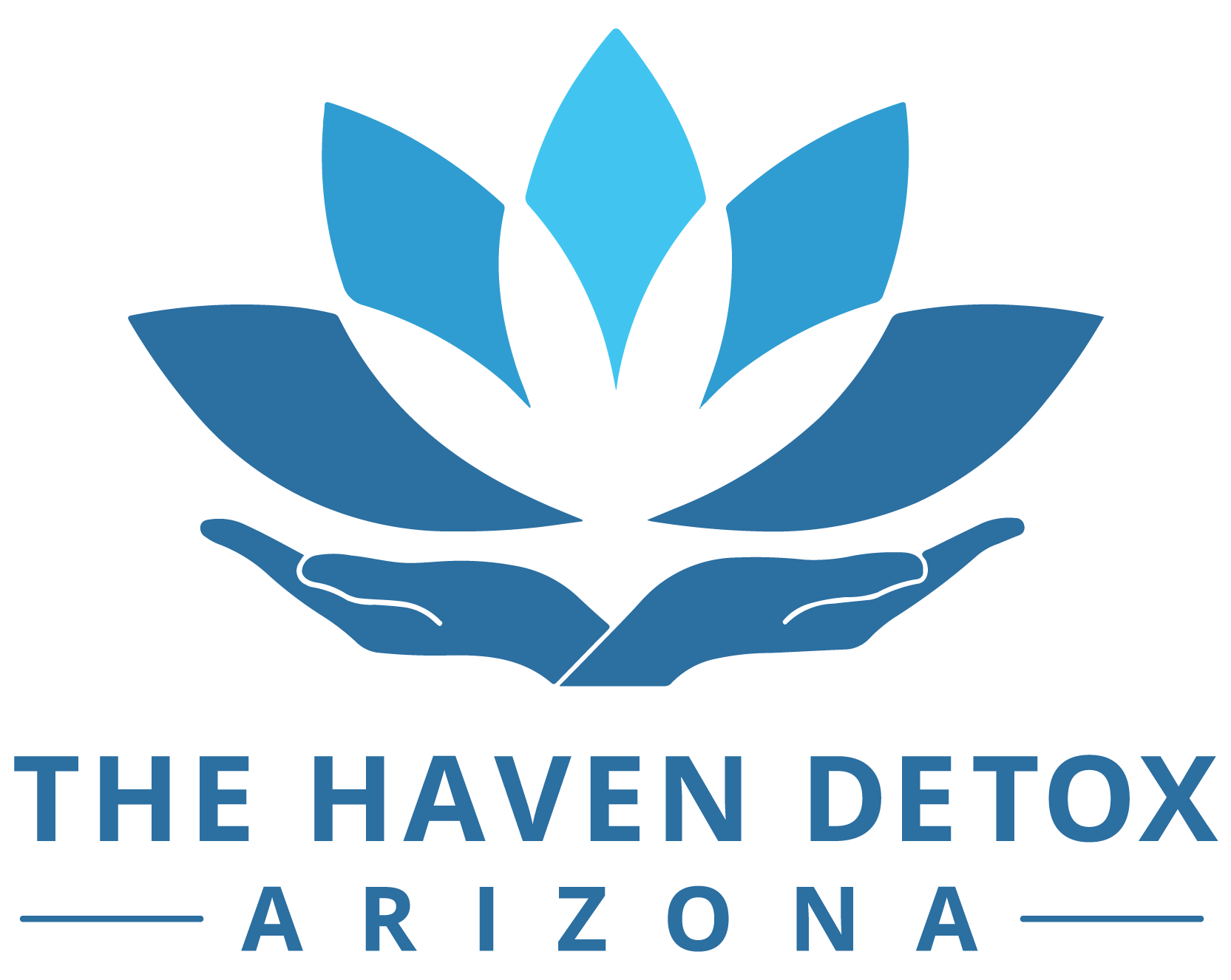Suboxone Addiction Treatment
Suboxone addiction is a growing concern for many individuals seeking help for opioid dependence in Arizona. While Suboxone is intended to aid recovery, it can lead to dependence if not used properly. This guide will help you understand the risks of Suboxone addiction and how to manage it effectively.
Navigating the complexities of Suboxone addiction is essential for achieving long-term recovery. This blog provides valuable insights into the signs of addiction, treatment options available in Arizona, and the importance of support systems. Read on to explore how to overcome Suboxone addiction and reclaim your life.
Key Takeaways
Suboxone has a tendency for addiction if not used as directed, necessitating careful management. Here’s what you should know:
- Recognizing physical and behavioral symptoms of Suboxone addiction is vital for timely intervention and recovery.
- Arizona offers various treatment options, including detox programs, inpatient rehab, and outpatient services.
- Therapy and support groups enhance recovery, fostering connections with others facing similar challenges.
The Haven Detox-Arizona offers various treatment services to help you overcome Suboxone addiction. Dial (520) 525-1252 for details.

Understanding Suboxone And Its Addiction Risks
Suboxone is widely used for opioid addiction treatment, helping to ease withdrawal symptoms and cravings. However, it carries a risk of dependence if not used as directed. Knowing these risks is essential for safe and effective treatment.
What Is Suboxone?
Suboxone is a prescription medication that combines buprenorphine, which reduces cravings, and naloxone, which prevents misuse. It is commonly prescribed to help individuals manage opioid withdrawal symptoms, supporting recovery while reducing the risk of abuse.
Why Does Suboxone Lead To Dependence?
Suboxone can lead to dependence because it interacts with brain receptors, causing the brain to adapt to its presence over time. Misuse or prolonged use may increase tolerance, making it challenging to stop without experiencing withdrawal.
Signs And Symptoms Of Suboxone Addiction
Suboxone addiction has many signs and symptoms that affect people’s daily lives. Recognizing these symptoms helps people find ways to manage their journey toward recovery. Here are physical and behavioral symptoms that may impact individuals struggling with Suboxone addiction.
Physical Symptoms
Suboxone addiction often causes physical side effects that disrupt daily life. These symptoms can impact how people work, handle daily routines, and manage chronic pain. Below are common physical symptoms experienced by patients with long-term Suboxone use.
- Nausea and vomiting: Ongoing nausea can make eating a difficult decision.
- Muscle aches: People feel constant aches, limiting their daily activities.
- Sleep issues: Difficulty sleeping affects energy and mood throughout the day.
- Sweating: Patients experience excessive sweating, even during mild activities.
Recognizing these signs is the first step toward making informed decisions and seeking the support needed for recovery.
Behavioral Symptoms
Behavioral symptoms of Suboxone addiction change how patients interact with others and go about their routines. These signs impact relationships, work, and their ability to make healthy choices. Here are behavioral symptoms often seen in people struggling with Suboxone addiction.
- Mood swings: Frequent mood changes make handling emotions harder in daily life.
- Increased secrecy: Patients might hide drug use, causing trust issues with others.
- Neglecting responsibilities: People struggle to keep up with work and home tasks.
- Impulsive decisions: Addiction leads to risky actions, impacting their safety and health.
Understanding these signs empowers patients and their loved ones to recognize the impact of drug addiction and encourages them to seek help on their journey.
Suboxone Addiction Treatment Options In Arizona
Arizona offers several options for Suboxone addiction treatment, including inpatient, outpatient, and virtual care options. Clients can find supportive environments, Suboxone clinics, and treatment plans that fit various lifestyles. Each treatment plan is personalized to address substance use disorders.
Detoxification Programs
Detox programs in Arizona provide medical supervision to manage withdrawal symptoms safely. Clients receive a thorough medical evaluation by healthcare providers like nurse practitioners. Detox is an essential step before beginning other addiction treatment programs, promoting safe recovery in a supportive environment.
Inpatient Rehabilitation Programs
Inpatient rehab provides a structured, supportive environment with round-the-clock care. Patients work with Suboxone doctors and medical professionals to create a recovery plan. These programs offer a comprehensive approach, addressing both substance use disorders and family responsibilities in a secure setting.
Outpatient Treatment Options
Outpatient treatment offers flexibility, allowing clients to maintain daily routines while attending appointments. This option supports new patients needing convenience or those with family commitments. Patients access support services and benefit from personalized treatment plans tailored to their recovery needs.
Medication-Assisted Treatment (MAT)
MAT combines medications like Suboxone with therapy for a holistic approach to recovery. In Arizona, MAT programs at Suboxone clinics provide medical supervision from experienced healthcare providers. This comprehensive treatment plan helps clients overcome addiction with the help of a skilled medical team.

Behavioral Therapies And Support Resources
Behavioral therapies play a vital role in managing Suboxone addiction. These therapies provide personalized treatment plans tailored to each individual’s needs. In addition to medication, ongoing support is essential for reducing overdose risks and maintaining recovery in daily routines.
Cognitive Behavioral Therapy (CBT)
Cognitive Behavioral Therapy, or CBT, helps individuals change negative thoughts. This therapy teaches skills to cope with substance abuse triggers effectively. With special training, therapists guide patients to develop healthier behaviors and build a supportive daily routine.
Contingency Management
Contingency Management offers rewards for positive behaviors during recovery. This approach encourages individuals to meet specific goals related to their substance abuse treatment. Patients learn to appreciate progress, boosting motivation and encouraging participation in ongoing support programs.
Group And Family Therapy
Group and family therapy create a supportive environment for recovery. These sessions help individuals share experiences and develop healthy communication skills. Patients can strengthen relationships and build a robust support system by involving loved ones, enhancing their treatment journey.
Support Groups And Counseling
Support groups provide essential resources and a sense of community. Participants can connect with others with similar struggles, fostering understanding and empathy. Free online support groups offer flexible options, ensuring ongoing support for those facing Suboxone addiction challenges.
Frequently Asked Questions (FAQs)
What should I expect during the Suboxone treatment process?
During the Suboxone treatment process, you will start with an evaluation. A healthcare professional will assess your needs and history. They will explain how Suboxone works to help manage withdrawal symptoms and cravings.
You will receive a personalized treatment plan that includes regular doses. Typically, you will take Suboxone daily under supervision. Counseling and support services are often part of the program to aid recovery.
Throughout treatment, expect regular check-ins to monitor progress. These sessions help adjust your plan as needed. Your commitment is essential for success in overcoming addiction.
Does insurance cover Suboxone treatment in Arizona?
In Arizona, many insurance plans cover Suboxone treatment for opioid addiction. This coverage often includes both the medication and the necessary counseling services. However, it’s essential to check with your specific insurance provider to understand the details of your coverage.
Some insurance plans may have limitations or require prior authorization. If you don’t have insurance, options are available to help cover the costs. Research local clinics that may offer financial assistance for Suboxone treatment.
Step Into Recovery With The Haven Detox-Arizona
If you or someone you care about is struggling with Suboxone addiction, seeking professional help is a vital step towards recovery.
At The Haven Detox-Arizona, we offer specialized drug detox services designed to manage withdrawal symptoms while providing medical supervision safely. Our residential treatment program creates a supportive environment where you can focus on healing and developing the skills necessary for lasting recovery.
Don’t let addiction control your life—reach out to us today and take the first step towards reclaiming your future. Call us at (520) 525-1252 to learn more about our programs and how we can help you recover.





